Leading Forward
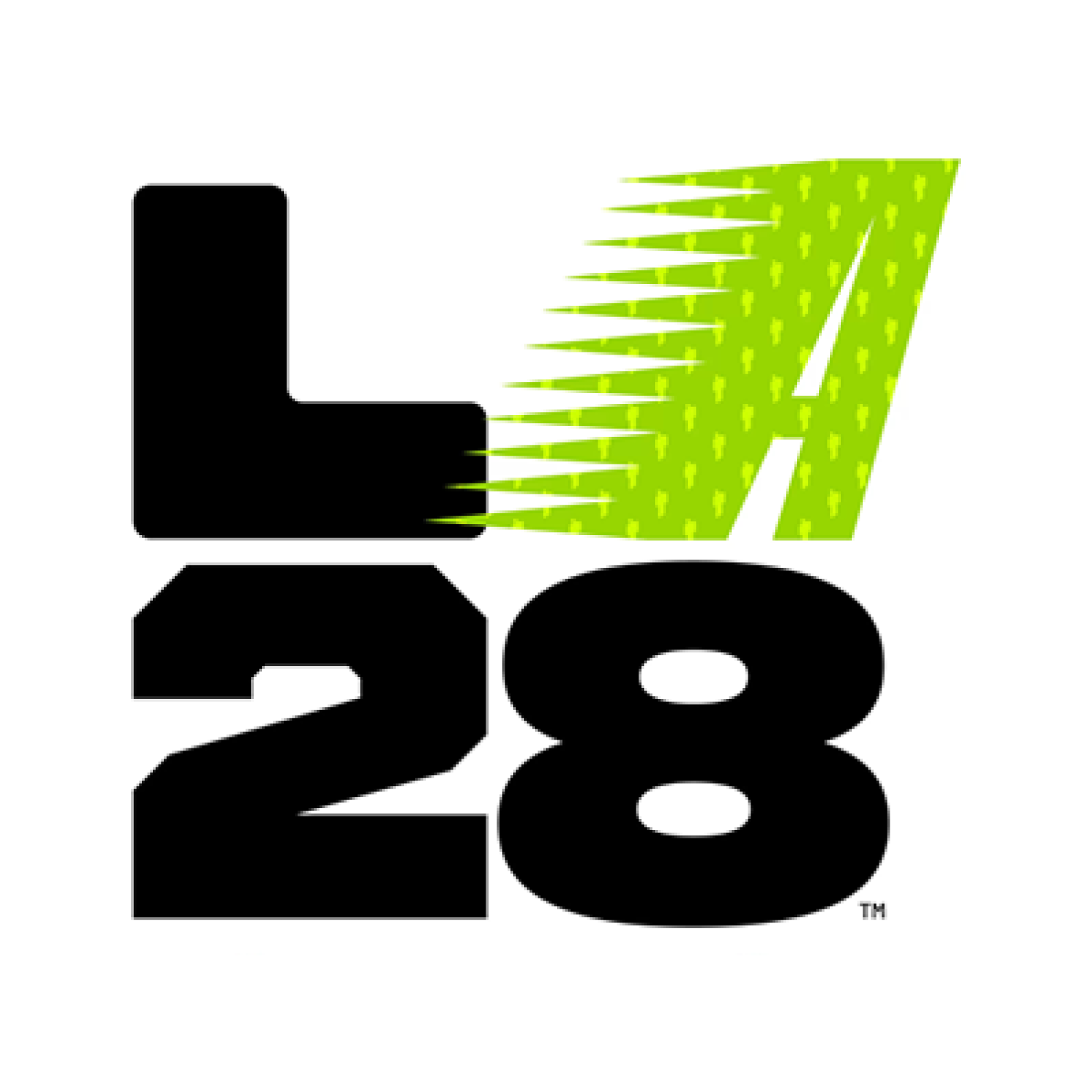
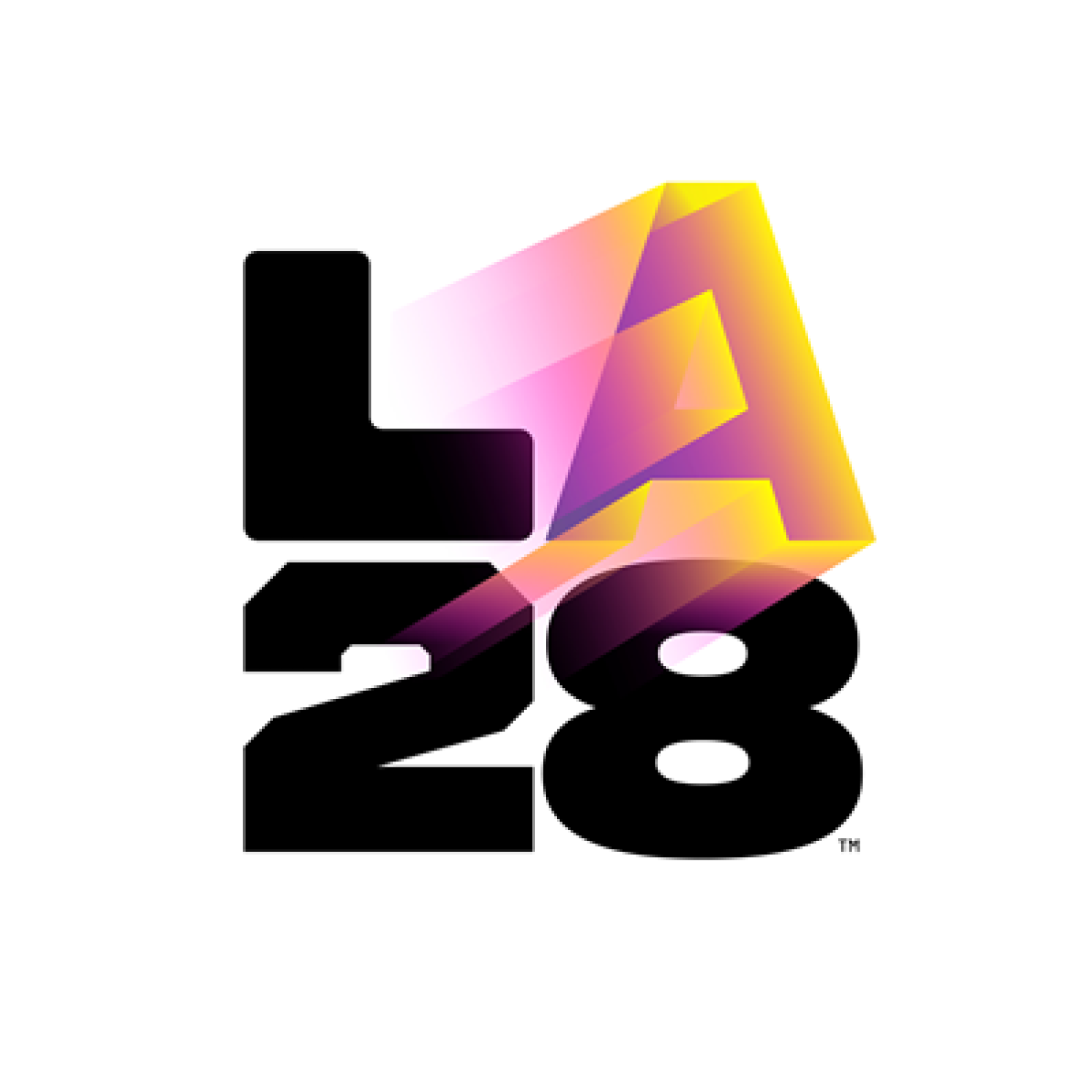
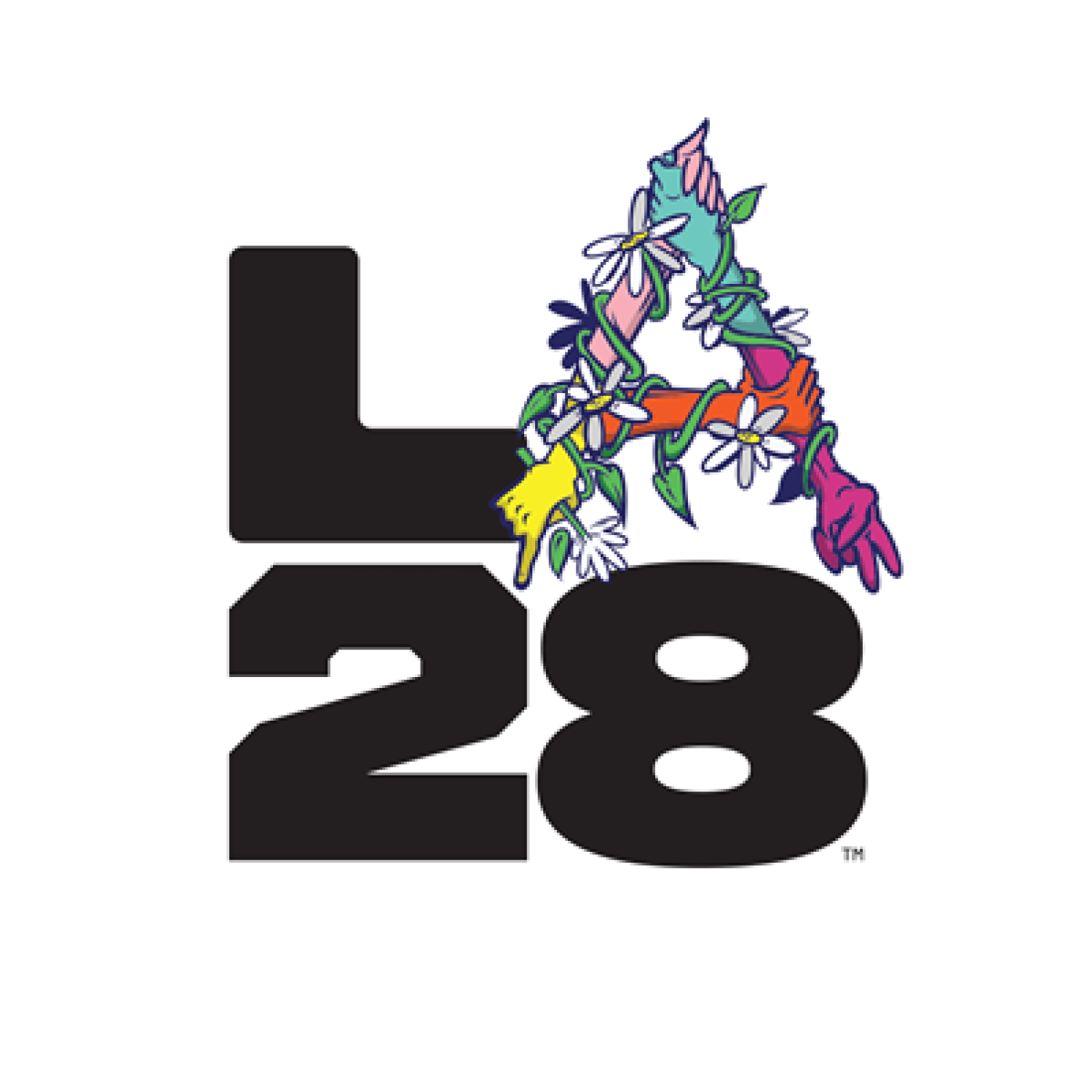
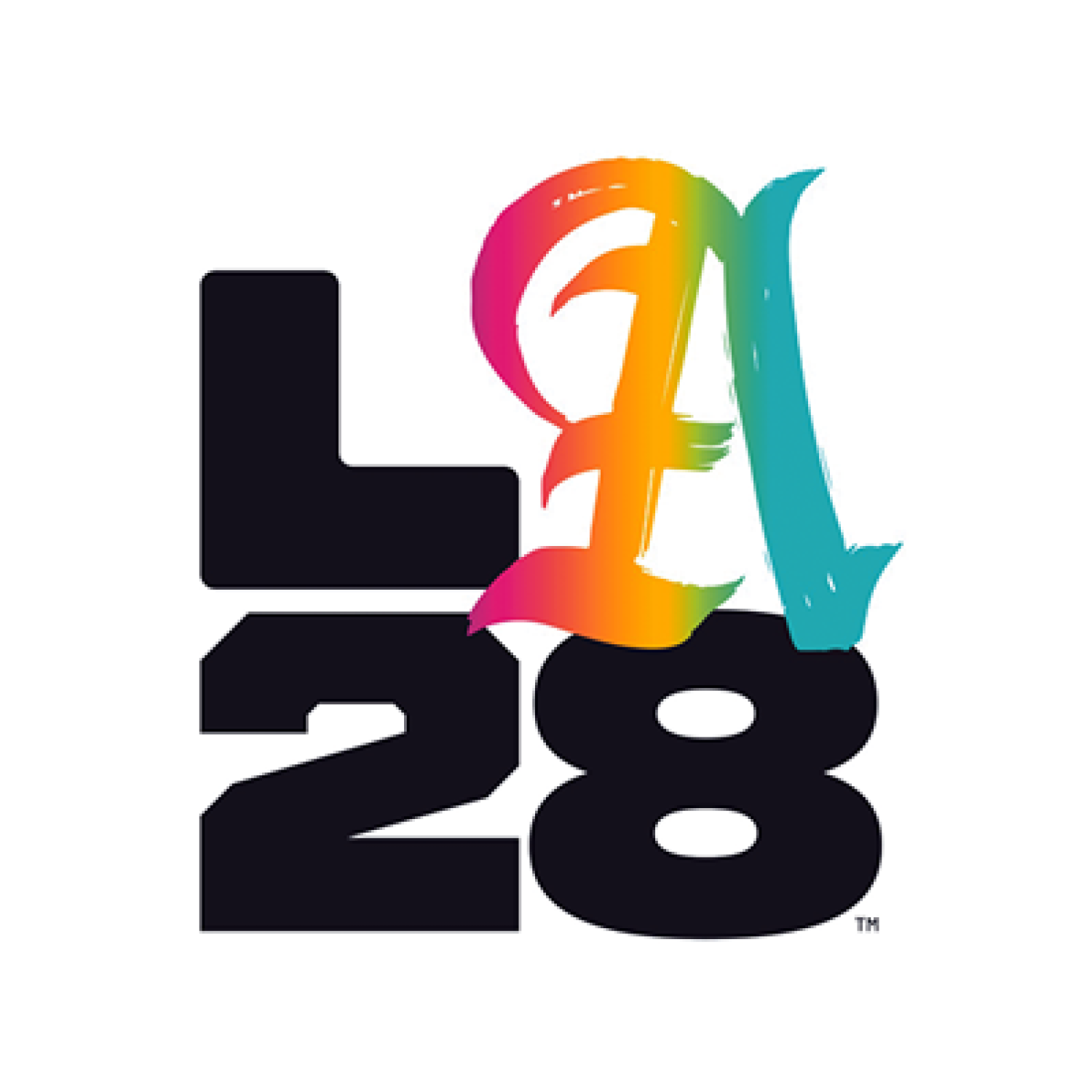
The A’s to accompany the LA28 logo were designed by Billie Eilish, Adam Rippon, Bobby Hundreds and LA28.
When the organizing committee of the 2028 LA Olympics and Paralympics set out to introduce the Games to the city of Los Angeles, it hired Jess Clifton (Advert’03) and the agency she founded, Low Earth Orbit, to lead the digital launch of the brand.
Clifton has a reputation for implementing creative digital solutions and harnessing talent, two traits key to the organizers’ goals of using digital platforms to engage a broader audience and recruiting Olympic athletes, artists and members of the public to design unique presentations of the “A” in the LA28 logo.
For starters, Clifton persuaded the Grammy-winning singer Billie Eilish to put her touch on one of the logos, which she did in a spiky, neon green font.
She also led development of the website, oversaw influencers, and piloted new programs for Snapchat and TikTok. Those pilots, she says, ended up “blowing our Gen Z awareness and engagement goals out of the water.”
With each new project, Clifton starts with a question: How can I use innovation to solve a business problem in a way that makes sense to the client while still creating compelling work?
Earlier in her career, as an account director at Goodby Silverstein and Partners, Clifton championed the first use of augmented reality in the commercial space with a 2009 piece for GE. The project allowed consumers to better understand smart grid technology by taking it for a test drive.
“It was a really cool way to bring technology and virtual experience into a brand, telling a human story that’s deeply interactive,” she says.
Then at Edelman, where she was in charge of leading the U.S. digital practice team, she doubled revenue and landed wins for Disney, Barbie, Petco, Facebook, Hawaii Tourism and others. In 2015, her team launched the first game reveal on Snapchat as a way to grab the attention of Call of Duty fans before Black Ops 3 was officially announced.
In 2016, PR Week highlighted “her high output, smarts, marcomms savvy, and leadership talents” as well as “her deftness with new technologies and storytelling” when she made its 40 Under 40 list. That year she was also named to The Holmes Report’s Innovator 25 North America list, which recognizes people who are reshaping the marketing and communications world.
Cliffton’s career was on a roll. After a number of career moves, including forming her own agency, she joined Media Monks in 2021 as the head of brand and marketing advisory. Yet despite this success, she felt a gap.
What was missing, she realized, was the support and mentorship of other female leaders. She missed her female colleagues from Edelman who were 10 to 15 years ahead in their careers and had been “thoughtful, considerate, supportive and constructive of me and my growth,” she says. “And they were always giving me really good feedback.”
At the same time, Clifton knew other women were looking for similar support from her. In an average week, she’d hear from nearly 20 female professionals who were reaching out for advice and mentorship. One of those professionals, Madison Janes (StratComm’19), was interviewing for new positions in advertising, and all of the creative directors and CEOs she interviewed with were male. She messaged Clifton on LinkedIn looking for a female perspective on the industry.
“These conversations not only make the professional journey more relatable, but encourage women to feel empowered to truly show up as their authentic selves.
Jess Clifton (Advert’03)
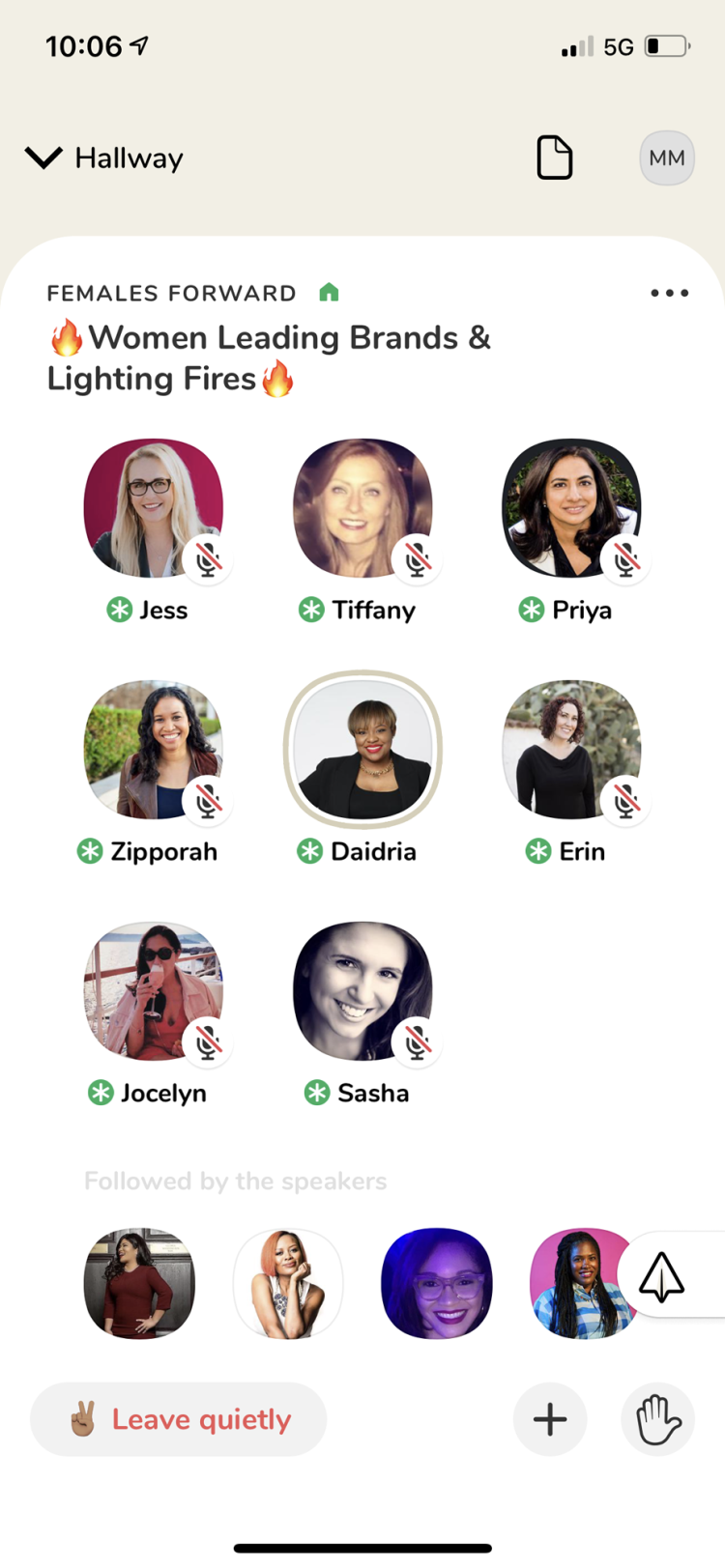
Where to find Females Forward
Go to femalesfwd.com
Follow them on social: @FemalesFWD
To join one of the weekly sessions, held at 9 a.m. PT Wednesdays, download the Clubhouse app and search for the Females Forward club.
This isn’t surprising given the national statistics of male-to-female creative directors. According to The 3% Movement, 29% of today’s creative directors are women, and this represents an enormous jump. When Kat Gordon founded the movement in 2012, only 3% of creative directors were women.
Realizing it was her turn to step up as a mentor, Clifton started asking herself, “What’s going to be my approach to giving back and making others feel like they’re welcome and included and supported?”
Her idea for a female mentorship program quickly started to take shape, and as someone naturally curious about social media platforms, she gravitated toward a new audio-based social network called Clubhouse. The platform allows users to join themed rooms to listen in or join conversations “on stage.”
Based on her goal “to reach back and bring up the next generation,” Clifton soon had a name––Females Forward––and format, a weekly one-hour session with fellow heavy-hitter female executives on Clubhouse. Janes jumped at the opportunity to become involved when Clifton asked her to develop the brand identity and social content for the organization.
National research backs up Clifton’s idea that such groups are needed to support women as they move up the ladder. According to a McKinsey & Co. report based on a 2019 Women in the Workplace study, early in their careers, women represent at least half of the positions in media and entertainment and are promoted at rates exceeding those of men. However, the same study found that this changes as they move up the ranks and that women represent only 27% of C-suite positions.
Since launching in March, Females Forward has grown to over 2,000 members on each of the Clubhouse and Instagram platforms. An average of about 100 people join each event, with up to 500 women participating depending on the topic and promotion.
The accessibility and content of the Females Forward sessions appeal to Rochelle Farnum, a senior manager of brand strategy for LA28, who finds that she can listen in during her mornings.
“They provide advice that is actionable and is delivered in a public forum and can be shared,” says Farnum, who has pages of notes from the sessions.
Through Females Forward, Clifton has hosted an impressive slate of over 125 female executives, including Nancy Reyes, CEO of TBWA\Chiat Day; Zip Allen, chief digital officer at Taco Bell; Jean Batthany, chief creative officer at Walmart; and Nicole Jeter-West, head of marketing and brand engagement for the LA 2028 Olympic and Paralympic Games. At least 50% of the panelists have been women of color, a goal Clifton had from the beginning.
During the sessions, they tackle topics ranging from what motivates them to work-life balance to women leading brands. The space they’ve created, and the fact that they talk about more than work, is important to Farnum.
“I appreciate that they bring their whole selves to the sessions,” she says.
Clifton would like to see Females Forward continue to expand, and for marketing and advertising students across the country to hear some of the conversations. “These conversations not only make the professional journey more relatable, but encourage women to feel empowered to truly show up as their authentic selves,” she says.
Her advice for professionals just starting out is to not try to figure out everything in advance.
“You’re not going to know exactly who you are, what you want to be or where you want to go right now. And that is totally OK,” she says. “The most important thing you can do is show up authentically for yourself and those around you each and every day. You will be amazed how things work out.”
Malinda Miller graduated from the College of Arts and Sciences with a degree in English in 1992 and Master's in Journalism in 1998.

